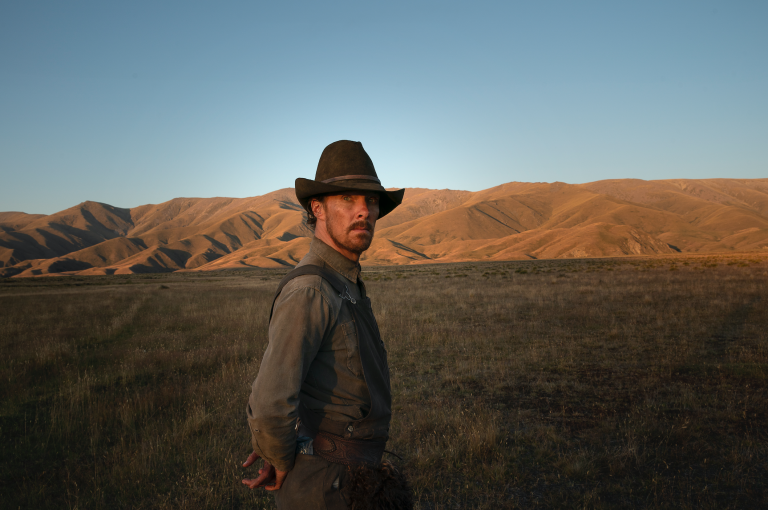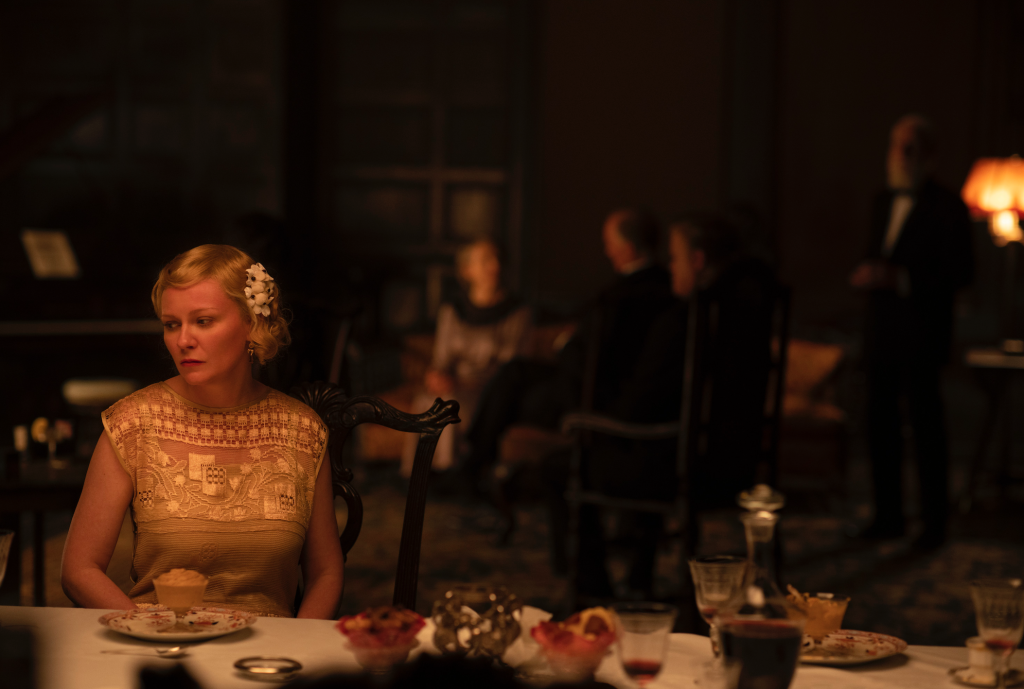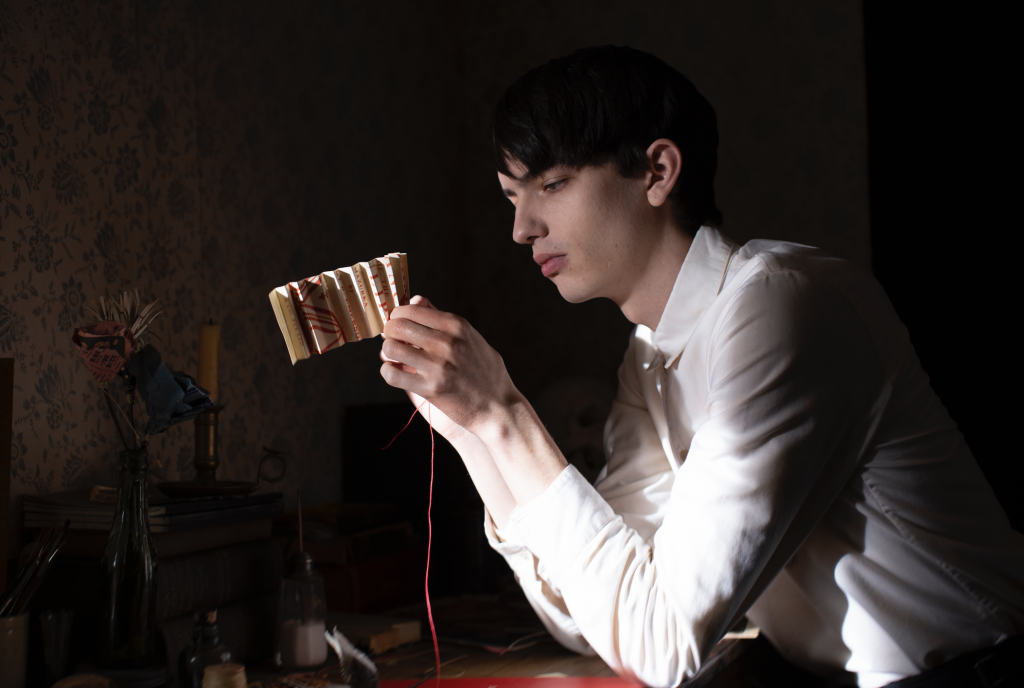
Creating period dramas that are fueled by psychological complexity and repressed emotions has largely driven filmmaker Jane Campion’s career over the past three decades. From one of her most notable and recognizable works, the 1993 Academy Award-winning The Piano, to her upcoming feature, The Power of the Dog, the writer-director-producer consistently proves her talent of crafting intimate character studies. Her stories powerfully explore the consequences of external conflicts on the mentality of both the strongest and most vulnerable people.
Based on Thomas Savage’s 1967 novel of the same name and set in 1925, The Power of the Dog follows the drastically different Burbank brothers, Phil and George (Benedict Cumberbatch and Jesse Plemons). The two are wealthy ranchers in Montana, where they preside over a sprawling property on which they raise livestock and train horses.
George handles the business side of the ranch, while Phil and his cowhands oversee the physical labor on the property.
While on a cattle drive trip, they stop at the Red Mill, a restaurant and rooming house, where they meet Rose (Kirsten Dunst), the establishment’s widowed proprietress, and her impressionable teenage son, Peter (Kodi Smit-McPhee). Phil behaves so cruelly to the mother and son that he drives them both to tears, and revels in their pan.

After Rose and George get married, they drop Peter off at medical school, and she accompanies her new husband back to the Burbank family’s mansion, much to Phil’s fury. He resents his brother’s new wife, and expresses his feelings by taunting her every chance he gets, including her for no longer being able to play the piano, which she used to do for a living. Phil also mocks her son’s lack of experience as a cowhand and what he believes to be the young man’s lack of masculinity. As a result, the new family struggles to find peace with each other, especially as they don’t understand their drastic differences and views on life.
Campion stunningly balanced the emotionally driven, psychodramatic elements of the period Western’s plot and character development with the visual and audio elements of the production. While the writer-director-producer worked closely with the movie’s main quartet of actors to develop both the subtle and overt qualities of their characters’ growth throughout the story, Cumberbatch is the project’s true standout star.
In a truly career-defining role that’s drastically different from most of the work that has garnered him attention in America, the Academy Award-nominated English actor enthrallingly captures and highlights Phil sense of dissatisfaction with his life circumstances. Cumberbatch openly flaunts the fact that his character is an expert in every aspect of his profession as a cattle rancher, but also doesn’t make an effort to hide the boredom he feels in his his career and with his family.

As a result, the egotistical Phil finds amusement in taking out his frustrations on those around him who he views to be meek, especially his brother, new sister-in-law and her son.
The Emmy Award-winning performer infuses his character with a slight sense of malice and antagonism that suggests that he isn’t simply teasing them; instead, he views them as targets who can distract him from his all-consuming personal misery.
Phil’s natural ability to take advantage of what he perceives to be other people’s weaknesses, despite him being a deeply traumatized man himself, is also emphasized through the outfits he wears throughout The Power of the Dog. The drama’s costume designer, Kirsty Cameron, crafted captivating looks for Phil, from his dirty spurs to at-times unkempt denim and ripped shirts, which metaphorically emphasize his inner turmoil and self-hatred. His overall disheveled look is also another stark difference he has from George, who prides himself on his clean-cut appearance as he handles the ranch’s business dealings.
Campion, who has always been an expressive visual filmmaker, further utilizes her collaboration with her crew members to enhance the characters’ tense emotions and self-protecting motivations. With the aid of cinematographer Ari Wegner, who also garnered attention this summer for her work on Zola, Campion emphasized the remote, sparsely populated nature of Montana in the mid-1920s by shooting on New Zealand’s South Island in The Power of the Dog.

The Western’s striking depth of field and hypnotic play of light over the setting’s looming mountains further emphasize the seclusion the family feels in the sprawling landscape. That isolation is amplified as the characters all ponder how they can escape both their mental – and at times physical – turmoil within themselves and with each other. The mounting dread that Phil, George, Rose and Peter all feel on the remote ranch is also amplified by the increasing tense strings that are featured in composer Jonny Greenwood’s atmospheric score.
The Power of the Dog is another stellar period drama that’s fueled by the signature psychological complexities and repressed emotions that have largely driven the features that Campion has written, directed and produced throughout her career. The psychodramatic elements that drive her latest movie are especially represented by Cumberbatch’s career-defining role as Phil, who lashes out in order to contend with the dissatisfaction he feels over his life circumstances. Combined with the drama’s stellar visuals, including Cameron’s enthralling, insightful costume designs and Wegner’s effortless capturing of the remote landscape, the feature is a true exploration into the tense dynamics of a seemingly successful family that’s actually struggling to survive.
Netflix is set to distribute The Power of the Dog in a limited theatrical release on November 17, before the company begins streaming the feature on December 1. The feature’s official distribution comes after it was the centerpiece movie at this year’s New York Film Festival.
Grade: A-
Here’s the trailer of the film.

